Want to know more about the Best Material Science Schools In the US and make an informed decision? Here is a good place to start.
Are you a budding scientist looking to create the next big thing? Or maybe you just want to impress your friends with your knowledge of materials. Either way, you’ve come to the right place.
We’ve done the heavy lifting for you and found the cream of the crop. From cutting-edge research to world-class faculty, these best materials science schools have got it all.
Put on your lab coat, grab a notebook, and get ready to learn.
Please note that schools are selected based on our criteria (at the end of the article), ranked by the latest acceptance rate.
Table of Contents
#25. Drexel University


- Acceptance rate: 83%
- Average entry score: 1190-1390 SAT or 26-32 ACT
- Student-to-faculty ratio: 10 to 1
- Estimated cost of attendance (tuition and fees): $75,980
- Average earning potential for graduates: $62,600 (College Simply)
Drexel’s Materials Science and Engineering programs provide students with a broad education in all aspects of materials, including their structure, properties, processing methods, and applications.
Students can choose from various MSE programs with specializations in biomaterials, nanomaterials, electronic materials, and polymer science. The programs provide hands-on experiences through research opportunities, advanced laboratory facilities, and industry collaborations.
Graduates of Drexel’s MSE programs have gone on to work for top companies in industries such as aerospace, electronics, and healthcare. Thanks to a focus on innovation and interdisciplinary collaboration that equips them with the skills and knowledge needed to shine.
Drexel’s Materials Science and Engineering programs are the perfect launchpad for students to excel in the rapidly evolving field of materials science.
Source: Drexel Materials Science and Engineering Catalog 2020-2023
#24. University of Tennessee Knoxville


- Acceptance rate: 78%
- Average entry score: 1240 SAT or 27 ACT
- Student-to-faculty ratio: 17 to 1
- Estimated cost of attendance (tuition and fees): $32,658-$50,848
- Average earning potential for graduates: $66,300 (College Simply)
Thanks to its research-focused curriculum and modern lab facilities, the University of Tennessee Knoxville’s materials science program is a skilled training ground for students seeking to enter the field.
The program offers a comprehensive curriculum that gives students a strong foundation in materials science. It also allows them to specialize in areas such as biomaterials, nanomaterials, or electronic materials.
The program also boasts close collaborations with industry partners, giving students opportunities for hands-on experience and real-world application of their knowledge.
Graduates of the program are well-prepared for careers in academia, industry, and government, making it a top choice for aspiring materials scientists.
Source: Future MSE Graduate Students
#23. University of Illinois at Urbana-Champaign
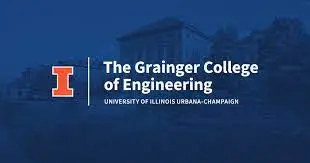

- Acceptance rate: 59%
- Average entry score: 1210-1470 SAT or 27-33 ACT
- Student-to-faculty ratio: 21 to 1
- Estimated cost of attendance (tuition and fees): $33,060-$50,510
- Average earning potential for graduates: $53,717 (Glassdoor)
The University of Illinois at Urbana-Champaign has a top-ranked program in Materials Science. It provides students with an in-depth understanding of materials’ properties and applications.
At UAT, students gain access to modern research facilities and the guidance of leading experts in the field. This prepares them for successful careers in industries like aerospace, energy, and healthcare.
The program also offers opportunities for internships and industry partnerships, allowing students to apply their knowledge in real-world settings.
Graduates of the program have a high job placement rate and are highly sought after by top employers.
Source: UIUC Materials Science & Engineering
#22. Pennsylvania State University


- Acceptance rate: 55%
- Average entry score: 1200-1400 SAT or 26-32 ACT
- Student-to-faculty ratio: 14 to 1
- Estimated cost of attendance (tuition and fees): $36,484-$54,062
- Average earning potential for graduates: $62,500 (College Factual)
Pennsylvania State University’s Materials Science programs provide students with an exceptional learning environment, world-class facilities, and renowned faculty.
Students receive hands-on training in state-of-the-art labs, preparing them for careers in fields such as nanotechnology, biomaterials, and materials for energy storage.
The faculty includes experts in areas such as ceramics, metals, polymers, and composites. Graduates of the program have access to a vast array of job opportunities, including positions in academia, industry, and government.
The program’s emphasis on research and innovation prepares students to be leaders in the materials science field.
Source: Penn State Department of Materials Science and Engineering
Similar articles like this:
- 25 Best Multidisciplinary Schools In The US
- 25 Best Gerontology Schools In The US
- 25 Best Nursing Schools In The US
#21. North Carolina State University

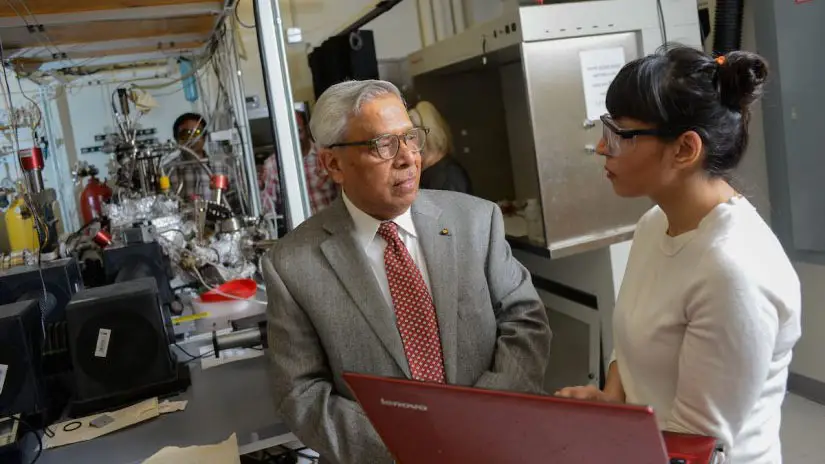
- Acceptance rate: 46%
- Average entry score: 1250-1420 SAT or 24-31 ACT
- Student-to-faculty ratio: 15 to 1
- Estimated cost of attendance (tuition and fees): $24,986-$45,771
- Average earning potential for graduates: $74,021 (North Carolina State University)
As a Materials Science student at North Carolina State University, you will be exposed to cutting-edge research and technology in the field, preparing you for a successful career in a rapidly growing industry.
The program offers a multidisciplinary approach, integrating chemistry, physics, and engineering to study the properties and applications of materials. This university also boasts top facilities and partnerships with industry leaders.
In addition, North Carolina State University is located in the Research Triangle, a hub for innovation and technology, giving students access to a thriving network of professionals and resources.
Source: NC State University Materials Science and Engineering
#20. University of Washington Seattle
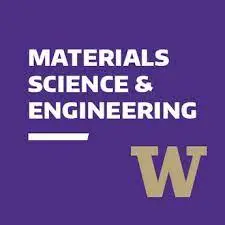

- Acceptance rate: 46%
- Average entry score: 1220-1470 SAT or 29-34 ACT
- Student-to-faculty ratio: 9 to 1
- Estimated cost of attendance (tuition and fees): $30,640-$58,470
- Average earning potential for graduates: $66,800 (College Simply)
The University of Washington Seattle’s Materials Science program is another materials science mastermind that has a stellar reputation in the field.
Not only will you learn the ins and outs of the properties of different materials, but also get hands-on experience in designing and synthesizing your own materials.
Plus, with access to top-of-the-line research facilities and renowned faculty, you’ll be on your way to becoming a materials science superstar.
Unleash your inner nerd, and join the ranks of the University of Washington Seattle’s Materials Science program. Your future self will thank you.
Source: UW Materials Science & Engineering
#19. University of Maryland College Park

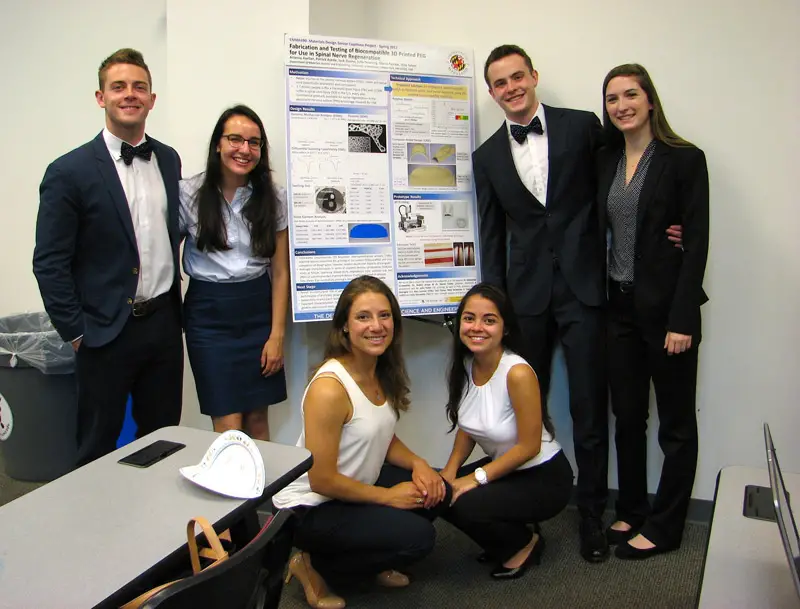
- Acceptance rate: 40%
- Average entry score: 1280-1470 SAT or 30-34 ACT
- Student-to-faculty ratio: 18 to 1
- Estimated cost of attendance (tuition and fees): $10,955-$50,000
- Average earning potential for graduates: $63,700 (College Simply)
Materials science students at the University of Maryland, College Park, have access to an extensive network of facilities and equipment to support their research.
But it’s not just the tools that make the difference. The faculty at UMD are some of the most dedicated and knowledgeable professors. They guide students through complex concepts and help them develop the skills they need to become successful in their field.
Combine all of that with the rigorous curriculum, and it’s no wonder UMD grads are making waves in the materials science world. When you go to UMD, you don’t just get a degree, you get a leg up on the competition.
Source: UMD’s Department of Materials Science and Engineering
#18. University of California San Diego


- Acceptance rate: 34%
- Average entry score: 1270-1480 SAT or 28-34 ACT
- Student-to-faculty ratio: 12 to 1
- Estimated cost of attendance (tuition and fees): $36,061-$65,835
- Average earning potential for graduates: $62,900 (College Simply)
UC San Diego’s Materials Science program is unique in its emphasis on hands-on learning through laboratory work and research opportunities.
Students are encouraged to take an interdisciplinary approach to their studies, collaborating with faculty and peers from diverse backgrounds to solve real-world problems.
The program also offers personalized attention, with small class sizes and individualized advising to help students tailor their education to their interests and career goals. This approach has led to a high rate of student success, with graduates going on to make significant contributions to industry, academia, and research.
UC San Diego’s Materials Science program also creates a dynamic and supportive environment for students to thrive and make a meaningful impact in the field.
Source: UC San Diego Materials Science and Engineering Program Catalog
Similar articles like this:
- 25 Best Schools For Neuroscience In The US
- 25 Best Pharmaceutical Sciences Schools In The US
- 25 Best Astronomy Schools In The US
#17. University of Texas Austin


- Acceptance rate: 32%
- Average entry score: 1230-1500 SAT or 29-34 ACT
- Student-to-faculty ratio: 16 to 1
- Estimated cost of attendance (tuition and fees): $28,928-$57,512
- Average earning potential for graduates: $70,300 (College Simply)
The Texas Materials Institute, based at the University of Texas in Austin, is an elite institution that trains future materials scientists.
Students are able to participate in cutting-edge research programs, giving them a chance to explore fundamental principles of materials science and engineering.
Through coursework, research projects, and seminars, students gain an understanding of the properties and behaviors of materials at the atomic and molecular levels.
Besides coursework, the Institute offers mentorship programs and career development resources to help students transition from their studies to professional careers.
Source: Texas Materials Institute
#16. University of California Santa Barbara
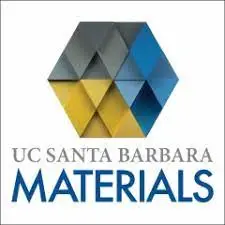

- Acceptance rate: 29%
- Average entry score: 26-31 ACT
- Student-to-faculty ratio: 17 to 1
- Estimated cost of attendance (tuition and fees): $37,415-$67,169
- Average earning potential for graduates: $66,400 (College Simply)
UC Santa Barbara’s materials science program offers a unique blend of practical hands-on experience and cutting-edge research opportunities, preparing students for high-paying jobs in a variety of industries.
The program’s focus on interdisciplinary collaboration, along with its state-of-the-art facilities and talented faculty, helps students develop a deep understanding of the properties and behavior of materials at the atomic and molecular levels.
This expertise, combined with the program’s emphasis on innovation and entrepreneurship, provides graduates with the skills and knowledge needed to succeed in today’s rapidly-evolving job market.
Source: Materials Graduate Programs
#15. Purdue University West Lafayette
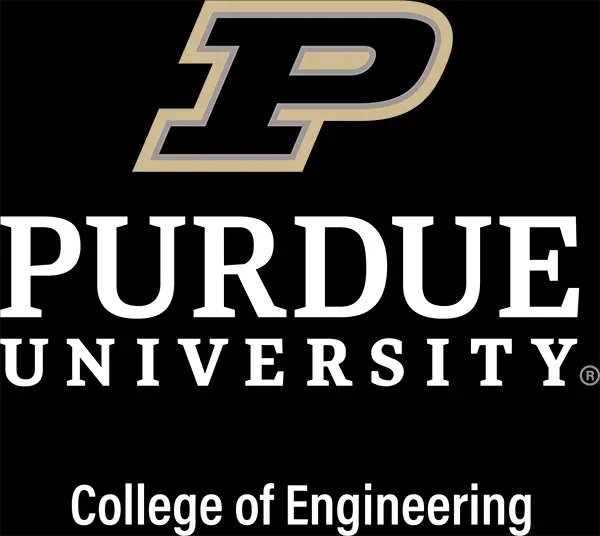

- Acceptance rate: 25%
- Average entry score: 1267 SAT
- Student-to-faculty ratio: 14 to 1
- Estimated cost of attendance (tuition and fees): $24,390-$50,000
- Average earning potential for graduates: $99,800 (Purdue University)
Purdue University West Lafayette’s materials science program is highly regarded among students for its exceptional course offerings and research opportunities.
The program covers a wide range of topics, from materials synthesis and characterization to nanotechnology and biomaterials. Students have access to world-class facilities, equipment, and faculty.
The program’s emphasis on hands-on learning and research prepares students for successful careers in industry or academia. In addition, the program has a strong network of alumni who provide mentorship and career guidance to current students.
Source: Materials Engineering
#14. University of Michigan Ann Arbor


- Acceptance rate: 20%
- Average entry score: 1360-1530 SAT or 31-34 ACT
- Student-to-faculty ratio: 15 to 1
- Estimated cost of attendance (tuition and fees): $32,272-69,326
- Average earning potential for graduates: $80,900 (College Simply)
The University of Michigan Ann Arbor’s Materials Science programs are renowned for their interdisciplinary approach to teaching and research. This school boasts state-of-the-art facilities and internationally recognized faculty.
The program’s emphasis on collaboration and innovation fosters a dynamic learning environment. Students can explore their interests and make significant contributions to the field.
Through its Materials Science programs, the University of Michigan Ann Arbor provides students with a solid foundation in science and engineering.
Source: UMich MSE
What’s it like to study at the University of Michigan, Ann arbor?
Similar articles like this:
- 25 Best Physics Schools In The US
- 25 Best Psychology Schools In The US
- 25 Best Sociology Schools In The US
#13. University of North Carolina Chapel Hill


- Acceptance rate: 20%
- Average entry score: 1310-1500 SAT or 29-33 ACT
- Student-to-faculty ratio: 13 to 1
- Estimated cost of attendance (tuition and fees): $24,546-$51,725
- Average earning potential for graduates: $72,064 (Salary.Com)
The University of North Carolina Chapel Hill’s Materials science programs provide students with a strong foundation in the interdisciplinary field of materials science.
Graduates of the program are well-equipped to pursue successful careers in a variety of industries, including aerospace, electronics, energy, biomedical, and more.
The program’s emphasis on hands-on research and collaboration with industry partners ensures that graduates are not only knowledgeable but also experienced in applying their skills to real-world problems.
As a result, UNC Chapel Hill’s Materials science graduates are highly sought after by employers and have a track record of success in their careers.
Source: Applied Physical Sciences
#12. University of California Los Angeles

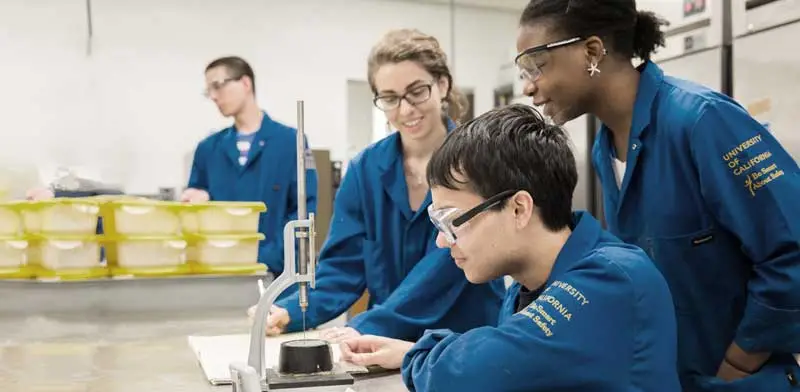
- Acceptance rate: 18%
- Average entry score: 1290-1520 SAT
- Student-to-faculty ratio: 18 to 1
- Estimated cost of attendance (tuition and fees): $16,847-$31,949
- Average earning potential for graduates: $86,000 (College Simply)
The Materials Science and Engineering program at UCLA is highly regarded, providing aspiring scientists with the tools and knowledge they need to excel in the field.
UCLA’s materials science and engineering program is an innovative blend of research, hands-on learning opportunities, and internationally renowned faculty members.
With access to advanced research laboratories and a supportive academic community, graduates of the program are well-equipped to make significant contributions to materials science and engineering.
Source: Peterson’s Department of Materials Science and Engineering
What’s it like to study at UCLA?
#11. Georgia Institute of Technology


- Acceptance rate: 16%
- Average entry score: 1390 SAT
- Student-to-faculty ratio: 21 to 1
- Estimated cost of attendance (tuition and fees): $31,898-$53,010
- Average earning potential for graduates: $73,500 (College Simply)
Georgia Tech’s material science program provides a comprehensive understanding of materials’ properties, structure, and behavior. Future scientists also acquire the ability to engineer these materials for specific applications.
With state-of-the-art facilities and experienced faculty members, students can conduct cutting-edge research in areas such as nanotechnology, biomaterials, and renewable energy.
The program also emphasizes interdisciplinary collaboration, allowing students to work with chemistry, physics, and engineering experts to tackle complex problems.
Graduates of the program have a competitive edge in the job market and are well-equipped to make significant contributions to the field of material science.
Source: Georgia Tech Materials Science and Engineering
What’s it like to study at Georgia Tech?
#10. University of California Berkeley


- Acceptance rate: 14.4%
- Average entry score: 1415 SAT
- Student-to-faculty ratio: 17 to 1
- Estimated cost of attendance (tuition and fees): $41,878-$71,632
- Average earning potential for graduates: $79,301 (Glassdoor)
UC Berkeley’s materials science program is a rich source of innovation and excellence, with a dash of California cool thrown in for good measure.
This program is the perfect playground for the forward-thinking scientist, pushing the boundaries of what’s possible in the field.
With state-of-the-art facilities and top-notch faculty, UC Berkeley is leading the charge in materials science research, developing cutting-edge materials that will shape the future of our world.
From nanotechnology to energy storage, this program is a force to be reckoned with, driving progress in the field and beyond.
Source: Berkeley Academic Guide
What’s it like to study at UC Berkeley?
Similar articles like this:
- 25 Best Political Science In The US
- 25 Best Social Sciences Schools In The US
- 25 Best Veterinary Schools In The US
#9. Cornell University


- Acceptance rate: 11%
- Average entry score: 1450-1560 SAT or 33-35 ACT
- Student-to-faculty ratio: 9 to 1
- Estimated cost of attendance (tuition and fees): $78,992
- Average earning potential for graduates: $73,528 (Cornell University)
Are you a science geek with a thirst for knowledge? Look no further than Cornell University’s Materials Science program.
With top-notch faculty and state-of-the-art facilities, you’ll gain a deep understanding of the properties and behavior of materials, from the atomic level to the macro scale.
Plus, with a focus on interdisciplinary collaboration, you’ll have the opportunity to work with experts in fields ranging from engineering to chemistry.
And let’s not forget the bragging rights that come with being part of one of the most prestigious materials science programs in the world.
Source: Cornell’s Materials Science and Engineering
What’s it like to study at Cornell University?
#8. Rice University


- Acceptance rate: 9%
- Average entry score: 1490-1570 SAT or 34-35 ACT
- Student-to-faculty ratio: 6 to 1
- Estimated cost of attendance (tuition and fees): $74,110
- Average earning potential for graduates: $70,500 (College Simply)
Rice University’s Materials Science program is a top-tier program that provides students with access to world-class facilities, cutting-edge research opportunities, and a vibrant college community.
This program is led by a distinguished faculty that includes some of the most renowned researchers in the field, who provide students with a wealth of knowledge and expertise.
The materials science labs and research centers at Rice offer students the opportunity to work on groundbreaking projects and engage in hands-on learning experiences.
Rice’s Materials Science program, with its focus on interdisciplinary collaboration and innovation, is an ideal choice for aspiring scientists who want to make a meaningful impact in the field.
Source: Rice University’s Materials Science and Nano Engineering
What’s it like to study at Rice University?
#7. Northwestern University
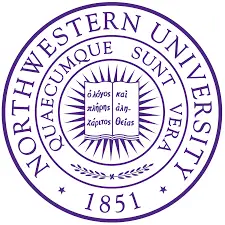
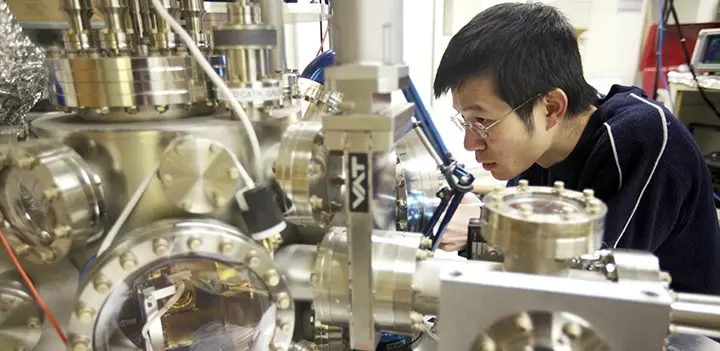
- Acceptance rate: 7%
- Average entry score: 1440-1550 SAT or 33-35 ACT
- Student-to-faculty ratio: 6 to 1
- Estimated cost of attendance (tuition and fees): $62,391
- Average earning potential for graduates: $68,551 (Glassdoor)
Northwestern University’s McCormick School of Engineering is a dream for any student who loves materials science. It provides them with a comprehensive curriculum that’s hotter than a jalapeno pepper.
Students get to whip up a storm of knowledge, from materials characterization to processing and synthesis, using state-of-the-art facilities and equipment that are cooler than the other side of the pillow.
Plus, they collaborate with faculty and industry partners like a boss, gaining valuable experience worth more than a pot of gold. Also, the McCormick School’s career services and networking opportunities are the cherry on top that helps students slay in their careers. Boom!
Source: Northwestern Materials Science & Engineering
What’s it like to study at Northwestern University?
#6. University of Pennsylvania

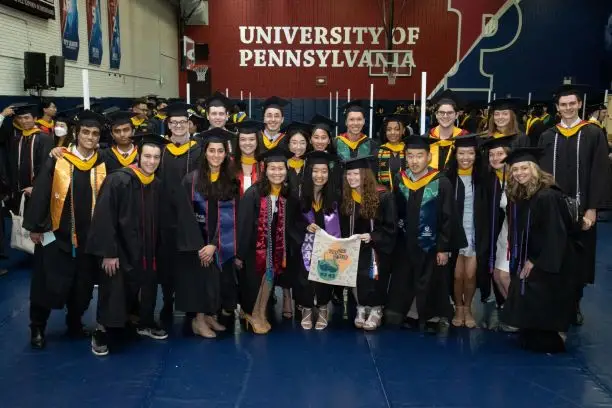
- Acceptance rate: 5.9%
- Average entry score: 1460-1570 SAT or 33-35 ACT
- Student-to-faculty ratio: 7 to 1
- Estimated cost of attendance (tuition and fees): $65,790
- Average earning potential for graduates: $62,500 (College Factual)
Materials science is a versatile discipline that enables innovations across a wide variety of technologies, from cell phones to solar energy to bioimplants to airplanes.
The University of Pennsylvania’s Materials Science program is highly regarded worldwide for its interdisciplinary approach to the field.
This program applies insights from the basic sciences to design new materials and fabrication methods, continually expanding the horizons of technology.
With a focus on nanoscience, the program prepares students to be leaders in the field, providing them with the knowledge and skills needed to innovate and contribute to advancements.
Source: UPenn’s Material Science and Engineering
Similar articles like this:
- 25 Best Information Technology Schools In The US
- 25 Best Zoology Schools In The US
- 25 Best Journalism Schools In The US
#5. Massachusetts Institute of Technology

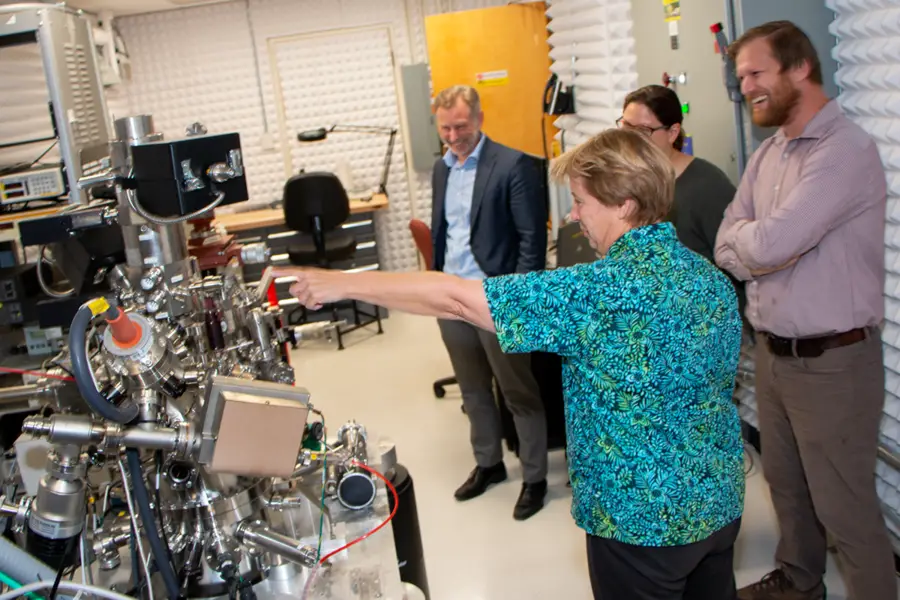
- Acceptance rate: 4%
- Average entry score: 1570 SAT or 36 ACT
- Student-to-faculty ratio: 3 to 1
- Estimated cost of attendance (tuition and fees): $77,570
- Average earning potential for graduates: $75,100 (College Simply)
MIT’s materials science and engineering students are equipped with the knowledge and skills needed to become expert scientists.
The program emphasizes the importance of hands-on experience, providing students with access to state-of-the-art equipment and opportunities to work on research projects alongside faculty members.
Through this approach, students gain a deep understanding of the fundamental principles that govern materials science and engineering.
With a curriculum that is constantly evolving to incorporate new technological developments, MIT’s program prepares students to push the boundaries of scientific discovery and make significant contributions to the field.
Source: MIT Department of Materials Science and Engineering
What’s it like to study at MIT?
#4. Columbia University


- Acceptance rate: 4%
- Average entry score: 1440-1570 SAT or 34-35 ACT
- Student-to-faculty ratio: 6 to 1
- Estimated cost of attendance (tuition and fees): $85,000
- Average earning potential for graduates: $74,200 (College Simply)
Columbia University’s Materials Science program provides students with a strong foundation in fundamental principles, hands-on research, and innovation. Through the program, students gain a deep understanding of materials’ properties, structures, and applications.
They work on cutting-edge research projects and collaborate with industry partners, preparing them for careers in industries such as aerospace, energy, electronics, and healthcare.
With their expertise, graduates can tackle complex problems and develop new materials and technologies that have the potential to revolutionize industries. The program’s focus on research and innovation ensures that graduates are at the forefront of their field and can adapt to changing industry needs.
Source: Materials Science and Engineering
What’s it like to study at Columbia University?
#3. Harvard University


- Acceptance rate: 4%
- Average entry score: 1460-1580 SAT or 33-35 ACT
- Student-to-faculty ratio: 7 to 1
- Estimated cost of attendance (tuition and fees): $76,963
- Average earning potential for graduates: $75,625 (Salary.com)
Harvard University’s materials science program is part of the Engineering Sciences area of study at the John A. Paulson School of Engineering and Applied Sciences.
The program ranges from fundamental work in solid and fluid mechanics to diverse studies in materials, mechanical systems, and biomechanics.
Harvard faculty members mentor and train undergraduate students in several branches of science including biomaterials, materials science, nanotechnology, and robotics.
Graduates of the program have gone on to establish exciting startups in healthcare, robotics, and other fields. They’ve also begun a range of careers in law, industry, and government.
Source: Harvard Materials Science & Mechanical Engineering
What’s it like to study Harvard University?
#2. Stanford University


- Acceptance rate: 3.9%
- Average entry score: 1470-1570 SAT or 34-35 ACT
- Student-to-faculty ratio: 5 to 1
- Estimated cost of attendance (tuition and fees): $78,898
- Average earning potential for graduates: $81,948 (College Factual)
Stanford University’s material science and engineering program prepares students for future careers. The program provides students with a strong foundation in the fundamental principles of materials engineering.
Students learn how materials can be designed, synthesized, processed, and utilized to meet the needs of society. They are trained to work on cutting-edge technologies in areas such as energy, electronics, biotechnology, and aerospace.
The curriculum emphasizes hands-on experiences that allow students to apply their knowledge in real-world settings. Moreover, the program also offers opportunities for research and collaboration with industry partners.
Source: Stanford Material and Engineering
What’s it like to study at Stanford University?
#1. California Institute of Technology


- Acceptance rate: 3.9%
- Average entry score: 1530-1560 SAT
- Student-to-faculty ratio: 3 to 1
- Estimated cost of attendance (tuition and fees): $83,598
- Average earning potential for graduates: $80,087 (Indeed)
The materials science program at the California Institute of Technology (Caltech) is world-renowned for its exceptional quality. This program focuses on developing a deep understanding of the fundamental principles of materials science.
Students work closely with distinguished faculty members who are experts in their field. These future materials scientists have access to state-of-the-art facilities and cutting-edge research tools.
Through a rigorous curriculum that includes both classroom instruction and hands-on laboratory experience, Caltech students gain the skills and knowledge they need to become leaders in the field of materials science.
Source: Caltech Materials Science
Conclusion
These top universities offer all necessary resources to students interested in developing advanced nanomaterials or improving daily objects like cup holders.
Students will be exposed to cutting-edge equipment, research techniques, and guidance from professors who specialize in nanomaterials.
In addition to offering top-notch programs, these universities have a reputation for producing some of the world’s most influential materials science researchers.
Selection Criteria
Here is a list of the factors we considered when selecting the best colleges for material science:
Please note that the order in this list might vary by ranking criteria and sources.
- Reputation and ranking of the school: We looked for schools that have a strong reputation and high ranking in material science.
- Faculty expertise, qualifications, and specialization: We researched the faculty members and their areas of expertise, and qualifications to ensure that the school has professors with relevant expertise and specialization in the areas of material science that are of interest.
- Curriculum and resources: We evaluated the curriculum to ensure it aligns with students’ interests and career goals and considered the quality of the school’s facilities and resources, such as labs, equipment, and libraries.
- Opportunities for hands-on learning and research: We looked for schools that provide opportunities for hands-on experience through internships, co-op programs, or fieldwork.
- Student support services and alumni network: We considered the availability of support services and the strength of the alumni network in providing mentorship, internships, and job opportunities after graduation.
- Extracurricular activities and diversity: We evaluated the availability of extracurricular activities and clubs that align with students’ interests and considered the school’s diversity and inclusivity.
- Networking and post-graduation support: We researched the school’s network of alumni and their post-graduation support for material science students, and also considered if the schools have a strong network of industry professionals and researchers in material science.
Frequently Asked Questions
Q1. What are the best material science schools in the United States?
While there may not be a single best school for all material science majors, the following schools have earned top spots in rankings and reviews.
- Massachusetts Institute of Technology (MIT)
- California Institute of Technology (Caltech)
- Georgia Institute of Technology
- Stanford University
- the University of Illinois at Urbana-Champaign.
Q2. What are the admission requirements for these material science programs?
Admission requirements vary by school but typically include a strong academic background in science and math, letters of recommendation, essays, and standardized test scores such as the SAT or ACT.
Some schools may also require a minimum GPA and/or a personal interview.
Q3. How can students determine which material science program is best for them?
Students should research each program’s curriculum, faculty, research opportunities, and industry partnerships. They can also consider factors such as location, cost, and student life.
Visiting the campus and speaking with current students and faculty members can provide valuable insight into each program’s culture and community.
Q4. How do these material science schools prepare students for careers in the field?
These schools provide students with hands-on experience through research programs and internships with industry partners. They also offer a range of courses covering topics such as materials synthesis, characterization, and processing.
Professionals from these graduate schools are highly sought after by employers in industries such as aerospace, electronics, and medical devices.
Q5. How do these material science schools collaborate with industry partners?
These material science schools have strong connections with industry partners and collaborate on research projects, internships, and co-op programs.
They also host industry speakers and participate in industry-led workshops and seminars. Plus, they offer industry-sponsored research projects and provide consultation services to industry partners.
References
[1] Official Websites
[2] Salary Data from Glassdoor, College Factual, Grad Reports, College Simply, and Zippia, among others
[3] Ranking references including news media such as Top Material Science Universities in United States


